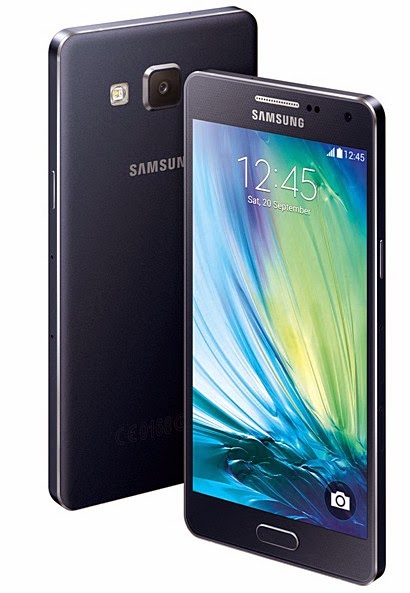Motorola Executive Suggests Samsung Could Lose Market Leadership Soon
In a recent interview with Forbes Magazine, Motorola COO Rick Osterloh - more or less - made an interesting prediction about the future of Samsung's mobile business.
He said, "Every seven years, the person who's been on top of the market has gone away. [...] We are going through one of those fascinating shifts where people are starting to realize that you don’t need to pay $600 for a top-tier phone to get a top-tier experience."
Forbes added, "Nokia lost the top spot first, then Blackberry. Samsung could be next."

Looking at the graph above showing the year on year growth of Samsung mobile business unit from Q1 2012 to Q2 2014, I guess it's not hard to make such bold prediction.
To quote Jackdaw Research, "Samsung’s failure to differentiate on software and services has left it vulnerable to competition from Chinese vendors able to create compelling hardware at much lower prices (and margins). It’s worth a quick history lesson here to understand the implications of what happens when you’re a consumer electronics vendor in a competitive market, and you can’t truly differentiate your product." And the implication is that - usually - the vendor ends up losing its lofty market position.
Not Going Out Without A Fight
Samsung recently implemented major improvements in crafting its smartphones across various price echelons to try to mitigate its slowly diminishing market performance. As a result, we're now seeing handsets like Samsung Galaxy A3, A5, and A7 flaunting features previously unheard of in the company's midrange phone category.


But of all handsets from the Korean company that will be launched within this year, it is perhaps the flagship model - already being called Samsung Galaxy S6 - that will determine the brand's fate in the next twelve months. In 2014, Samsung was able to ship 12 Million units of the current top-of-the-line model Samsung Galaxy S5, which greatly contributed to the 24% global smartphone market share that the company got last year. It was a staggering sales figure for one device but it still wasn't enough.
According to Mashable, "Samsung's sales for its flagship Galaxy S5 smartphone came in well below expectations, moving 12 million units compared to 16 million for the Galaxy S4. So far, the Galaxy S5 has sold 40% fewer units than the company had anticipated. The shortfall was especially pronounced in non-U.S. markets and the company is scrambling to sell inventory that languished in warehouses, according to a report from The Wall Street Journal. The report adds that J.K. Shin, the head of Samsung's mobile business, could be replaced or see his responsibilities shifted to another area."
If Samsung Galaxy S6 or Samsung Galaxy S Edge (if that's what it's going to be called) were to save the Korean electronics giant and turn things around for the brand, I believe - given the trend that we're seeing on that graph - it has to be a bigger success than Samsung Galaxy S4 or at least the SGS5. That's a seriously tall order -- but nothing's impossible, right?
Personally (and I've said this before), I'm rooting for Samsung because I know that there are many Filipinos who rely on this brand for their monthly income, which trickles down to their families. There are also many other Pinoy businesses - like distributors and dealers - whose success is in direct proportion with how well Samsung performs in the market. Having said that, I'm really wishing the Korean company all the best this year. Good luck, Samsung!
He said, "Every seven years, the person who's been on top of the market has gone away. [...] We are going through one of those fascinating shifts where people are starting to realize that you don’t need to pay $600 for a top-tier phone to get a top-tier experience."
Forbes added, "Nokia lost the top spot first, then Blackberry. Samsung could be next."

As of February 7, 2015, Samsung remains to be the world's number one smartphone maker in terms of total units sold. Apple is #2, followed by Lenovo (which now owns Motorola Mobility) and Xiaomi. However, despite being at the top spot, the growth of Korean Giant's mobile devices arm appears to be quickly losing momentum.
Looking at the graph above showing the year on year growth of Samsung mobile business unit from Q1 2012 to Q2 2014, I guess it's not hard to make such bold prediction.
To quote Jackdaw Research, "Samsung’s failure to differentiate on software and services has left it vulnerable to competition from Chinese vendors able to create compelling hardware at much lower prices (and margins). It’s worth a quick history lesson here to understand the implications of what happens when you’re a consumer electronics vendor in a competitive market, and you can’t truly differentiate your product." And the implication is that - usually - the vendor ends up losing its lofty market position.
Not Going Out Without A Fight
Samsung recently implemented major improvements in crafting its smartphones across various price echelons to try to mitigate its slowly diminishing market performance. As a result, we're now seeing handsets like Samsung Galaxy A3, A5, and A7 flaunting features previously unheard of in the company's midrange phone category.

Samsung Galaxy A5, for instance, comes with real metal frame, SuperAMOLED display, and a 5 MegaPixel front facing camera for selfies -- and it costs less than Php 20,000. Still, in spite of these clear enhancements, we're not sure if it can actually win against upcoming 2015 smartphones from local sellers and Chinese brands with better technical specifications.

But of all handsets from the Korean company that will be launched within this year, it is perhaps the flagship model - already being called Samsung Galaxy S6 - that will determine the brand's fate in the next twelve months. In 2014, Samsung was able to ship 12 Million units of the current top-of-the-line model Samsung Galaxy S5, which greatly contributed to the 24% global smartphone market share that the company got last year. It was a staggering sales figure for one device but it still wasn't enough.
According to Mashable, "Samsung's sales for its flagship Galaxy S5 smartphone came in well below expectations, moving 12 million units compared to 16 million for the Galaxy S4. So far, the Galaxy S5 has sold 40% fewer units than the company had anticipated. The shortfall was especially pronounced in non-U.S. markets and the company is scrambling to sell inventory that languished in warehouses, according to a report from The Wall Street Journal. The report adds that J.K. Shin, the head of Samsung's mobile business, could be replaced or see his responsibilities shifted to another area."
If Samsung Galaxy S6 or Samsung Galaxy S Edge (if that's what it's going to be called) were to save the Korean electronics giant and turn things around for the brand, I believe - given the trend that we're seeing on that graph - it has to be a bigger success than Samsung Galaxy S4 or at least the SGS5. That's a seriously tall order -- but nothing's impossible, right?
Personally (and I've said this before), I'm rooting for Samsung because I know that there are many Filipinos who rely on this brand for their monthly income, which trickles down to their families. There are also many other Pinoy businesses - like distributors and dealers - whose success is in direct proportion with how well Samsung performs in the market. Having said that, I'm really wishing the Korean company all the best this year. Good luck, Samsung!



.jpg)